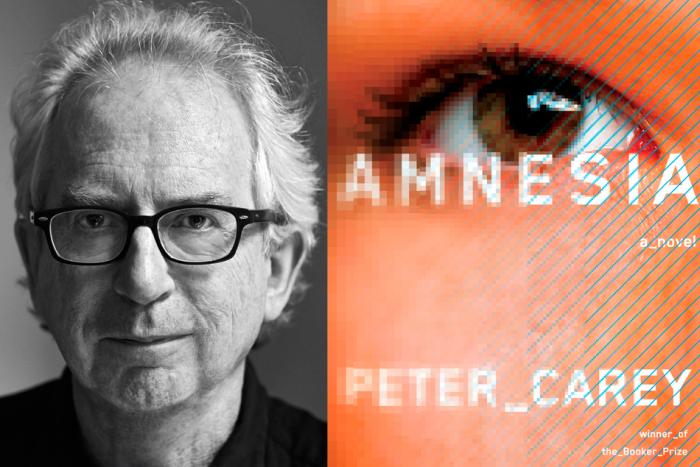The Haribo Sugar Free Gummy Bear reign of terror was devastating and well-documented. On the German candy’s Amazon page, the comments piled up—review after review, each with a more baroquely intricate description of gastrointestinal distress than the last.
“Like nothing I've ever imagined,” warned the highest-rated review on the site. “What came out of me felt like someone tried to funnel Niagara Falls through a coffee straw.”
One hapless candy eater warned of “gastrointestinal Armageddon.” Others told tragic stories of dates gone wrong, of casual snacks that turned into hours-long ordeals—grown adults twisted into Hieronymus Bosch-esque contortions in the wreckage of their bathrooms, sweaty faces pressed against cool tile. “I’m a 280 pound man. I. Was. Sobbing,” wrote one survivor. “Eat two at a time. Three if you’re brave. But for the love of God and all things on this earth, DO NOT EAT ANY MORE.”
The over-the-top comments—gross-out comedy under the guise of consumer review—quickly went viral. Publications from BuzzFeed to the Guardian devoted entire articles to rococo descriptions of violent bowel movements. The overwrought Amazon review, of course, is just one of the comedic genres born of the Internet—the digital equivalent of writing something witty next to the urinal or yelling jokes in a crowded movie theatre. The reviews were also a prime example of “humourous complaining,” perhaps the dominant form of expression on the web, and the subject of a recent study by researchers from the University of Colorado and Texas A&M.
In an upcoming article to be published in the Journal of Consumer Research, the researchers use the Haribo epidemic as a case study in their look at the intersection between whining, with all of its negative associations, and humour. Are complaints funnier than praise? And does a jokey complaint achieve its goal?
As the researchers explain, people complain for a number of reasons: to vent, to make small talk, to gain moral support, to warn others of a product that might, say, “power wash your intestines,” or just to show off their own refined taste. Jump on Twitter to rail against Ticketmaster or yell about manspreading and chances are you’ll find a sympathetic audience.
But complaining comes with a price. Chronic whiners are tiresome—even chronic whiners with genuine complaints. There’s only so much complaining you can do without people seeing you as grumpy and boring.
This is where being funny helps. “Being humorous offers vast interpersonal benefits,” the researchers write, in the dry, deeply unfunny style that characterizes all academic writing about humour. The academics follow the theory that humour springs from “benign violation.” Things are funny when they’re wrong, but not distressingly so. Complaining about the time your parents embarrassed you in front of your high-school girlfriend gets a chuckle. Complaining about the time your parents were viciously murdered during a home invasion does not.
In six related studies, the researchers looked at the place where complaining and being funny meet online. In one study, they analyzed reviews on Yelp, which allows users to indicate whether or not they found a review funny. Unsurprisingly, people were far more likely to find one-star reviews humourous than five-star raves.
In another, researchers had undergraduate students post funny complaints (e.g. “Dear Italian men, Do you think cat-calling while riding on a Vespa with another man will make you more likely to get some? Sincerely, Confused American”) as well as serious complaints on their Facebook walls. Jokey complaints generated far more “likes” than serious gripes.
But if joking around lets you complain without losing social capital, endearing you to your readers, it also runs the risk of trivializing real grievances. In the Haribo study, the researchers gathered one-star gummy reviews and had respondents rate them across a number of different categories: perceived humour, impression of the complainer, entertainment value, sympathy with the reviewer, and whether or not you believed the reviewer deserved some form of compensation.
As expected, funny commenters were seen as more likable. But they were also less likely to be taken seriously. No one thought, “This person describing flatulence ‘like trumpets calling the demons back to Hell’ is in need of sympathy and compensation!”
This is fine if we’re just talking about gummies, but increasingly problematic when applied to more serious issues. Joking about foolish Italian men will likely make you seem more likable than bitterly complaining about cat-calling, but does it make casual sexual harassment seem like something that can just be laughed off? If humour is born of “benign violation,” then joking around is an indication that a complaint shouldn’t be taken seriously. “Consistent with the theory,” the authors write, “laughter signals to others that a potentially threatening situation is safe or that an inappropriate act is not intended to be serious.” It’s the criticism that people like Jon Stewart sometimes get from the left: making jokes about genuine problems runs the risk of trivializing them, creating a strangely apathetic audience content to smirk at a problem rather than fight to change it.
The researchers’ own case study, however, provides a counterexample to this theory. If your mockery is widespread enough—if the joking is so attention-grabbing that the eyes of the world turn to the object of your complaint—you truly can make a difference. Case in point: On Amazon, Haribo's Sugar Free Gummy Bears, the source of hundreds of uncomfortable evenings and countless cheap Internet jokes, are “currently unavailable.”






